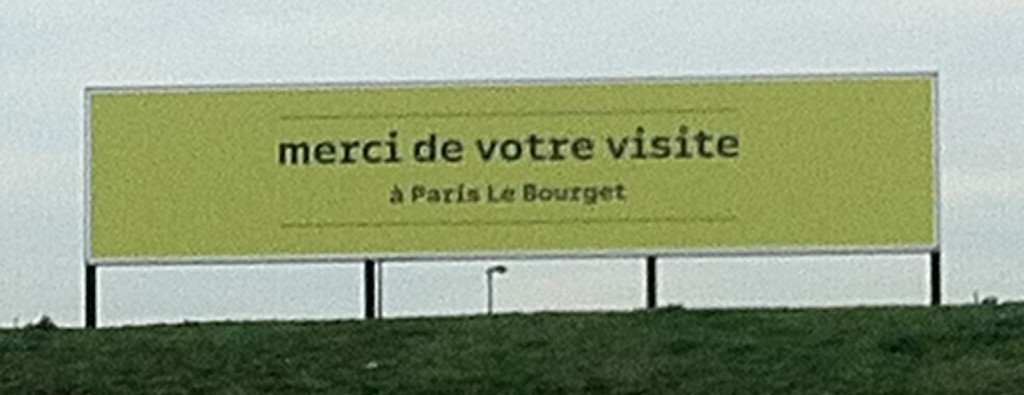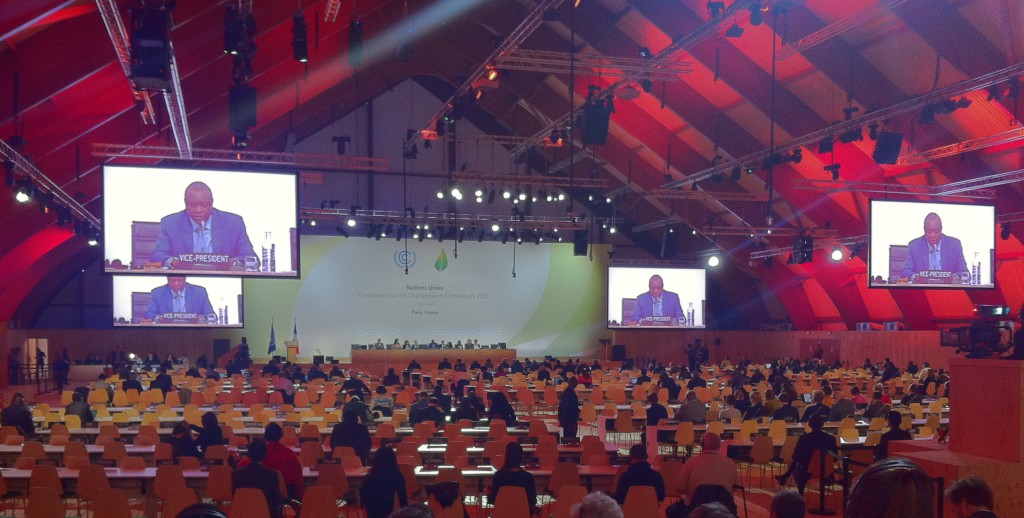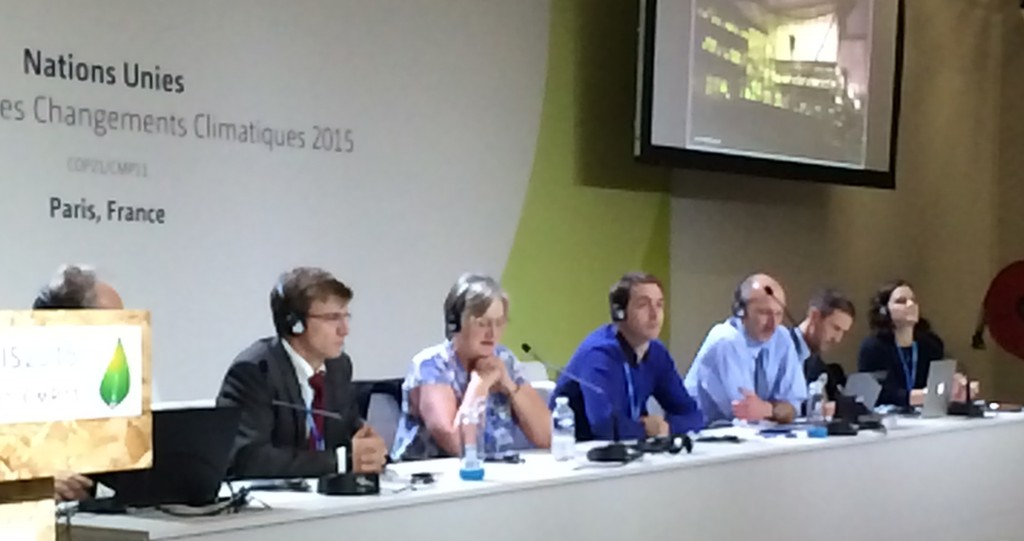What have we learnt at COP21 so far? The 147 world leaders who turned up spoke passionately. The negotiators seem determined to get a strong agreement, already working past midnight each evening. The process of the negotiations seems to be much improved from previous COPs, with small groups doing much of the hard work.
The plenary sessions so far are setting up subgroups to discuss particular contentious issues, as well as very small ‘informal informals’ to edit particular sentences or paragraphs. The attention to every detail of the wording is extraordinary, but rather tedious for those not directly involved!
Overall, the organisation of the event has been fantastic with superb logistics, even with the high security, airport-style scanning and very visible armed police presence.
Our job as scientists is to communicate our science to the negotiating teams and interested observers. At our event yesterday, attended by over 100 people, the team from the Walker Institute and the Met Office discussed the record breaking temperatures of 2015, the increase in risk of UK heatwaves and floods, the likely carbon budgets to meet the 2°C target, as well as detailed interactions on the ground in Africa to help farmers.
I don’t envy the negotiators who have a tough and probably very long ten days ahead. It was very obvious from the sessions I managed to attend there are still considerable differences of opinion between the developed and developing world. Time will tell whether these differences can be overcome – the mood certainly seemed very positive.



Can you summarise the considerable differences between the views of the developed world and the developing world? My guess would be that the developing world would like “us” (us maybe being the developed world) to do more. If so, this seems rather ironic given that possible harm to the developing world is sometimes trotted out as an argument against doing more.
It is quite hard to get an overall picture of what is going on. There are dozens of small meetings – one I managed to sneak into was apparently discussing a particular paragraph of text on ‘response mechanisms’. They had clearly been arguing about this paragraph at various times over the past two years and spent about 45 minutes arguing about whether it should be inserted into the draft agreement with or without a bracket (these brackets denote decisions to be made about exact choice of words). The developing nations, led by Argentina (representing the G77+China) and supported by Ghana (representing Africa), Saudia Arabia and Singapore wanted no bracket and couldn’t understand why the EU, New Zealand and the USA wanted the bracket. The EU were concerned that the paragraph meant something was required after 2020, the developing nations disagreed, but the facilitator pointed out that it didn’t specifically say in the text anything about timescales. They ran out of time and will revisit the discussion at another meeting. There were clearly negotiating tactics going on, particularly because other sections of the text had not been agreed elsewhere.
All rather opaque, but interesting nonetheless!
Probably best to read the specialist news blogs for a broader view as they have access to speaking to the negotiators.
cheers,
Ed.
Mostly Harmless. H/T Douglas Adams
https://www.youtube.com/watch?v=jzC27W8r5iA
“Whoosh” the sound of a deadline passing by. Now, if there was ever a better example of the ” fundamental interconnectedness of all things” then anthropogenic climate change has to take the biscuit. Alas at present it appears to be one baked in the “oven” of Vogon bureaucracy, the great Vogon bake off challenge, either it’s humanity as victor, or Earth is destined to be demolished by our own efforts and become a hyperspace bypass sooner than later?
See draft paris agreement to 5 december 2015 on http://unfccc.int/files/bodies/awg/application/pdf/draft_paris_agreement_5dec15.pdf
New text on 9/12/15
See http://unfccc.int/resource/docs/2015/cop21/eng/da01.pdf
Version 2 of 10 December 2015 at 21:00
See http://unfccc.int/resource/docs/2015/cop21/eng/da02.pdf
Draft decision : http://unfccc.int/resource/docs/2015/cop21/eng/l09.pdf